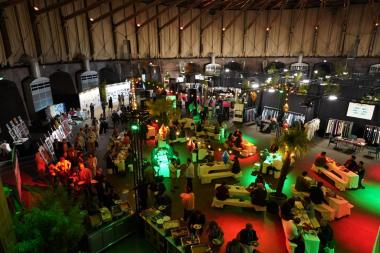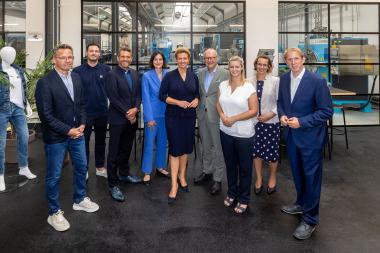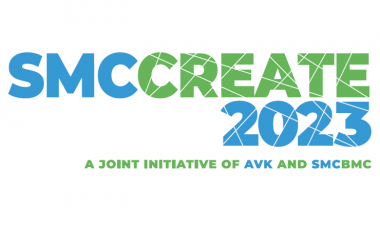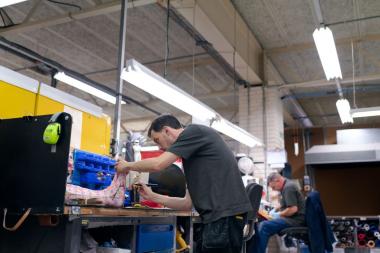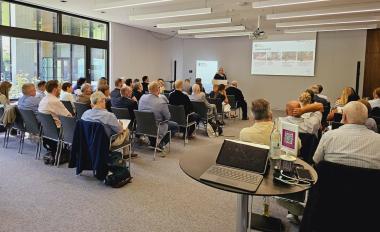Istanbul Fashion Connection 2023 again successful
With over 400 exhibitors, the fourth Istanbul Fashion Connection event from August 9-11, 2023, at the Istanbul Expo Center on 35,000 sqm was again successful.
With over 20,000 visitors from more than 125 countries, IFCO recorded an increase in visitors of over 30% compared to August last year. International visitors more than doubled, with the largest visitor groups coming from Asia and the Middle East at 33% each, Europe at 17%, Africa 11% and the Americas at 6%.
All retail channels were represented at the show, from large shopping mall and department store groups to wholesalers, international retail chains, multi-brand boutiques and online platforms.
Exhibitors
In six clearly segmented halls, more than 400 brands presented themselves on 35,000 sqm from womenswear, menswear, kidswear sportswear, denim, leather and fur.
The Core Istanbul
For the second time, the exclusive design area The Core Istanbul, originally launched as part of Istanbul Fashion Week, presented itself at IFCO. Among others, Arzu Kaprol, Ceren Ocak, Çiğdem Akın, Essin Barış, Ezgi Karayel, Fulyaİlkmen - F.ILKK, Mehmet Emiroğlu, Meltem Özbek, Mert Erkan, Merve Ulu - Kuela, Murat Aytulum, Nejla Güvenç - Nej, Özlem Erkan, Selin Küçüksöz, Tuba Ergin joined the show. Menswear was also represented with Emre Erdemoğlu, Seydullah Yılmaz - SYHZ Wear and Yakup Biçer - Y Plus.
The Exclusive Area
Leading Turkish retail brands, already internationally active, showed in The Exclusive Area such as B&G Store, Climber BC, Damat, Giovane Gentile, Hatemoğlu, Ipekyol, Kayra, Kiğılı, Lee Cooper, Lufian, Jakamen, Naramaxx and convinced with their high quality, sustainable and fashionable products, which were in great demand among international buyers. Jakamen opened the IFCO Shows on the first day of the fair with its latest spring / summer collection for 2024.
FashionIst
With its own catwalk, the occasion fashion section FashionIst for women and men featured thirty leading brands and showed a cross-section of the latest designs in evening fashion with their innovative colors and dynamic styles. Daily fashion shows informed visitors about the latest trends.
B2B Match Making
The B2B Match Making at IFCO took place in speed dating mode and was well received. Exhibitors were efficiently networked with buyers from all over the world such as Inditex from Spain, Walmart, Quicksilver, Teddy Fresh or Wilbo from the USA, Sainsbury's from the UK, Cihuah from Mexico, the Apparel Group and Safari Group from the United Arab Emirates, Ria Miranda from Indonesia, Hi Style and Zalora from Malaysia, Musinsa from South Korea, Ackermans from South Africa etc.
IFCO February 2024
For the next date of IFCO (7.-10. February, 2024), the organizers expect more than 600 companies. The participation of international fashion companies is to be expanded, for which IFCO provides the ideal springboard into the European and Asian markets.
IFCO / JANDALI MODE.MEDIEN.MESSEN






